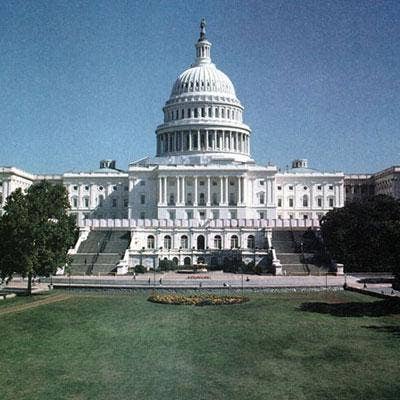Net Neutrality Rules Have Expired, But The Fate Of The Regulations Still Up In the Air

Net Neutrality rules ran out Monday, marking the end of the so-called internet fairness rules put in place under the Obama administration.
The Federal Communications Commission, led by Republican Chairman Ajit Pai, has officially rolled back the 2015 Net Neutrality rules put in place by Democratic chairman Tom Wheeler, which disallowed blocking, "throttling" or slowing down, and paid prioritization of internet traffic.
Under Pai, the new regulations say that telecom providers could potentially block and throttle traffic from other internet or content providers, such as Google and Facebook, but that these broadband companies would have to disclose to users how they handle web traffic.
[Related: Senate Votes In Favor Of Halting Repeal Of Net Neutrality Rules]
"[The rollback] is going to mean better, faster, cheaper internet access for consumers, and more competition,’ Pai said during a June 7 news conference in Washington, D.C., that addressed Net Neutrality.
Following the FCC's move to publish its repeal of the 2015 Net Neutrality rules into the Federal Register, congressional Democrats introduced a measure to overturn the FCC's plan to repeal Net Neutrality rules on the Net Neutrality "Day Of Action" that took place in February.
The U.S. Senate in May once again sought to halt the rollback, voting 52 to 47 in favor of protecting the regulations. Currently, Democrats are less than 50 votes from advancing a resolution in the House of Representatives to reinstate the rules.
Some solution providers in 2017 told CRN that the repeal of Net Neutrality was a threat to the channel, and expressed concerns that the rollback of the regulations could result in lightly regulated broadband providers that aren't motivated to deliver their software applications, cloud services, and other broadband-dependent services with the same quality of service or that they'll be more likely to give preference to competitors paying for exclusive access to so-called fast lanes in which to deliver their services.
The nation's largest telecom providers, such as AT&T, CenturyLink and Verizon, have vocally opposed Net Neutrality and have especially objected to the regulation's classification of ISPs as "common carriers," a category that allows these providers to be more heavily regulated by the FCC.
However, many tech companies and content providers, including Amazon, Google, Facebook, Netflix, and Twitter, have long been in favor of regulating broadband providers.